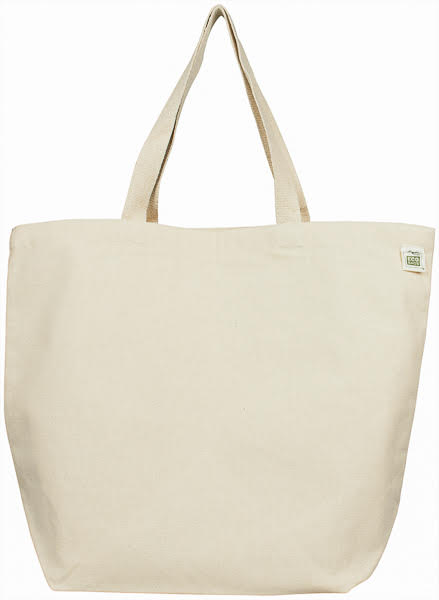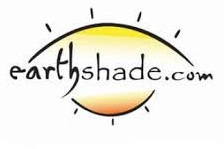
Water | Resources
Unused gas fireplace in house OK?
Question from Mary Beth
Hi Debra,
I have learned so much from your website , especially your insight about toxins in ourworld and how they can affect us. I need some advice about a question I have concerning a house my husband are thinking of renting. We are trying to avoid conditions that would bother my severe chemical sensitivities.
I found a house that has a heat pump but also has a gas fireplace that is connected to an outside propane gas tank. I need to know if it is OK to have a gas fireplace if it is never used (I would rather not have it at all). Or is there a possibility that there could be a leak or some other problem and we should avoid it to be safe?
I ‘d appreciate any advice from you or your readers. Thanks, Mary Beth
Debra’s Answer
The general rule of thumb for MCS is no gas lines coming into the house at all.
I think whether you tolerate it or not depends on your level of sensitivity. As to whether or not it would make your MCS worse, it pretty much depends on whether or not there are any gas leaks.
I personally have a gas stove that is well adjusted and vented. I probably would not be concerned about a gas fireplace that is not being used. But I’m sure some of my readers will have different advice for you.
How do I disinfect feathers?
Question from Violet56
I collect found white feathers, from seagulls. I am hesitant to use them for my creative projects as I would like to know how to disinfect them. I worry that they may contain microscopic parasites, insects etc……Does anyone have any suggestions? Thanks.
Debra’s Answer
Readers?
ECOBags
 Organic and natural cotton tote bags, string bags, book bags, lunch sacks, produce sacks and more. Bags can be custom printed for promotional purposes.
Organic and natural cotton tote bags, string bags, book bags, lunch sacks, produce sacks and more. Bags can be custom printed for promotional purposes.
Eatwild
 The #1 site for grass-fed food and facts. Provices information (including scientific references) about and sources for natural and nutritious grass-fed beef, lamb, goats, bison, poultry, pork and dairy products. Their state-by-state guide Directory of Pasture-Based Farmers list more than 800 farms in the United States and Canada. To be listed, producers must certify that they meet the Eatwild criteria, ensuring that the animals and the land are well-treated and that the products are exceptionally high in nutrition and are free of antibiotics and added hormones. Many of the farms are organically certified; others lack certification, but follow many of the organic standards. State-by-state includes local farmers markets, stores, restaurants or buying clubs that feature grass-fed meat and dairy products.
The #1 site for grass-fed food and facts. Provices information (including scientific references) about and sources for natural and nutritious grass-fed beef, lamb, goats, bison, poultry, pork and dairy products. Their state-by-state guide Directory of Pasture-Based Farmers list more than 800 farms in the United States and Canada. To be listed, producers must certify that they meet the Eatwild criteria, ensuring that the animals and the land are well-treated and that the products are exceptionally high in nutrition and are free of antibiotics and added hormones. Many of the farms are organically certified; others lack certification, but follow many of the organic standards. State-by-state includes local farmers markets, stores, restaurants or buying clubs that feature grass-fed meat and dairy products.
Eat Well Guide
 Enter your zip code to find farms, stores, restaurants, and local mail-order outlets that offer sustainably-raised meat, poultry, dairy and eggs in your area.
Enter your zip code to find farms, stores, restaurants, and local mail-order outlets that offer sustainably-raised meat, poultry, dairy and eggs in your area.
Earth Weave Carpet Mills
 Broadloom and area rugs made from undyed, untreated wool. The wool is held in place by a hemp/cotton “primary”, a natural rubber adhesive, and a secondary backing made of natural jute. The result is a completely nontoxic, renewable and biodegradable carpet with no added chemicals. Carpets are tufted, textured loop construction. Yarns of various natural colors give interesting varigated textures in greys and browns. Carpet pad is wool needled into a cotton backing “We urge our customers to recycle it to the garden where it will safely biodegrade while serving as an effective weed barrier and mulch.
Broadloom and area rugs made from undyed, untreated wool. The wool is held in place by a hemp/cotton “primary”, a natural rubber adhesive, and a secondary backing made of natural jute. The result is a completely nontoxic, renewable and biodegradable carpet with no added chemicals. Carpets are tufted, textured loop construction. Yarns of various natural colors give interesting varigated textures in greys and browns. Carpet pad is wool needled into a cotton backing “We urge our customers to recycle it to the garden where it will safely biodegrade while serving as an effective weed barrier and mulch.
 |
Listen to my interview with Earth Weave Carpet Mills Founder James Stinnett. |
Earthshade
 “Window fashions that are easy on our planet and delightful to the soul. We offer an exotic collection of hand-woven window shades custom crafted in 10 versatile operating styles. These truly natural window shades are made of non-toxic, environmentally sustainable, rapidly renewable reeds, bamboos, grasses, and other natural plant fibers. Primarily gathered in Central and/or South America, these materials are sun-dried and woven into delightful patterns without the use of chemicals, dyes, or other harsh processing. The fabrics are then custom crafted into shades according to your window specifications. All of this is accomplished by a family operated vendor with locations in Mexico and the United States, now with its third generation proudly crafting these exquisite, artisan quality window treatments.”
“Window fashions that are easy on our planet and delightful to the soul. We offer an exotic collection of hand-woven window shades custom crafted in 10 versatile operating styles. These truly natural window shades are made of non-toxic, environmentally sustainable, rapidly renewable reeds, bamboos, grasses, and other natural plant fibers. Primarily gathered in Central and/or South America, these materials are sun-dried and woven into delightful patterns without the use of chemicals, dyes, or other harsh processing. The fabrics are then custom crafted into shades according to your window specifications. All of this is accomplished by a family operated vendor with locations in Mexico and the United States, now with its third generation proudly crafting these exquisite, artisan quality window treatments.”
Earthcraft House
A project of the Southface Energy Institute in Atlanta, Earthcraft House is "a green building program that serves as a blueprint for healthy, comfortable homes that reduce utility bills and protect the environment." While not available online, they do have extensive planning documents that can serve to give you ideas for your own green building project.
Bromine Swimming Pool
Question from chantallepieu
I read the information you provided regarding your hydrogen peroxide swimming pool. Thank you so much for making your research data available to us. If I ever buy a pool, I will know what to use to safely keep the pool clean.
In the meanwhile, I have been looking for a safe pool to swim in and only found a bromine pool at a local gym. My questions, after reading your article, are: is bromine just as toxic as chlorine and is it carcinogenic?
Chantal
Debra’s Answer
Here’s a description of the health and environmental effects of bromine from the website of a water treatment company in the Netherlands:
Natural sea shells
Question from lindaann36
Hi, i was just wondering if you would be able to tell me where i could purchase real, natural sea shells from an actual beach. I do not live anywhere near the water so i can not find them myself. The local craft stores in my area sell plastic ones. Any help would be great. THANKS
Debra’s Answer
That’s easy. Just type “buy sea shells” in your favorite search engine and you will get lots of results.






